Klein Tools Refrigerant Leak Detector ET160 – Detects CFCs, HFCs, HCFCs & Blends from 100ppm, 18″ Gooseneck Probe, Visual & Audible Alarms, Dual Sensitivity, Auto Calibration, HVAC Tool for Engineers, Technicians, Air Conditioning, Home, Workshop
MSRP: £ 271.99
You save 44%
Original price was: £ 269.99.£ 149.99Current price is: £ 149.99.
Only 1 left in stock
Klein Tools Refrigerant Leak Detector ET160 – Detects CFCs, HFCs, HCFCs & Blends from 100ppm, 18″ Gooseneck Probe, Visual & Audible Alarms, Dual Sensitivity, Auto Calibration, HVAC Tool for Engineers, Technicians, Air Conditioning, Home, Workshop
Klein Tools Refrigerant Leak Detector ET160 – Detects CFCs, HFCs, HCFCs & Blends from 100ppm, 18″ Gooseneck Probe, Visual & Audible Alarms, Dual Sensitivity, Auto Calibration, HVAC Tool for Engineers, Technicians, Air Conditioning, Home, Workshop
- Refrigerant gas leak detection of CFCs, HFCs, HCFCs, and blends from 100 ppm to 3000 ppm
- 18-Inch gooseneck probe for easy access around equipment
- Visual and audible alarms increase with refrigerant gas concentration
- High (100 to 1000 ppm) and low (200 to 3000 ppm) levels of sensitivity settings; based on R-134A
- Automatic zero-point calibration at power-up, hold, mute, and low battery functions
- Auto-power off after 10 minutes of inactivity to conserve battery
- Conforms to EN14624:2020 testing
- 6.6-Foot (2 m) drop protection
- Includes 4 x AAA batteries, storage pouch, and instructions
| Weight | 1.20 kg |
|---|---|
| Dimensions | 25 × 20 × 20 cm |
| Colour | Black |
| Condition | New |
2 reviews for Klein Tools Refrigerant Leak Detector ET160 – Detects CFCs, HFCs, HCFCs & Blends from 100ppm, 18″ Gooseneck Probe, Visual & Audible Alarms, Dual Sensitivity, Auto Calibration, HVAC Tool for Engineers, Technicians, Air Conditioning, Home, Workshop
You must be logged in to post a review.


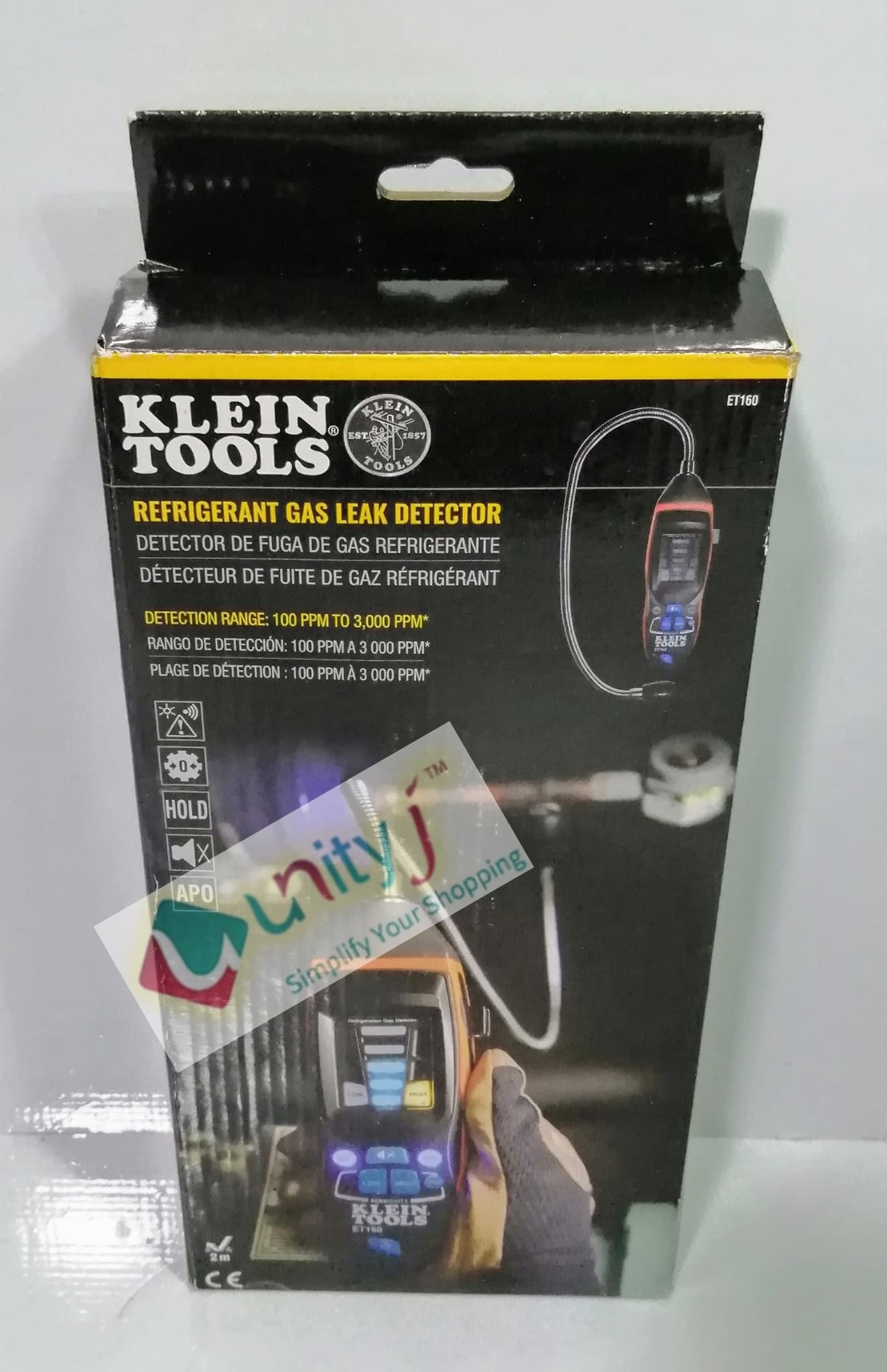
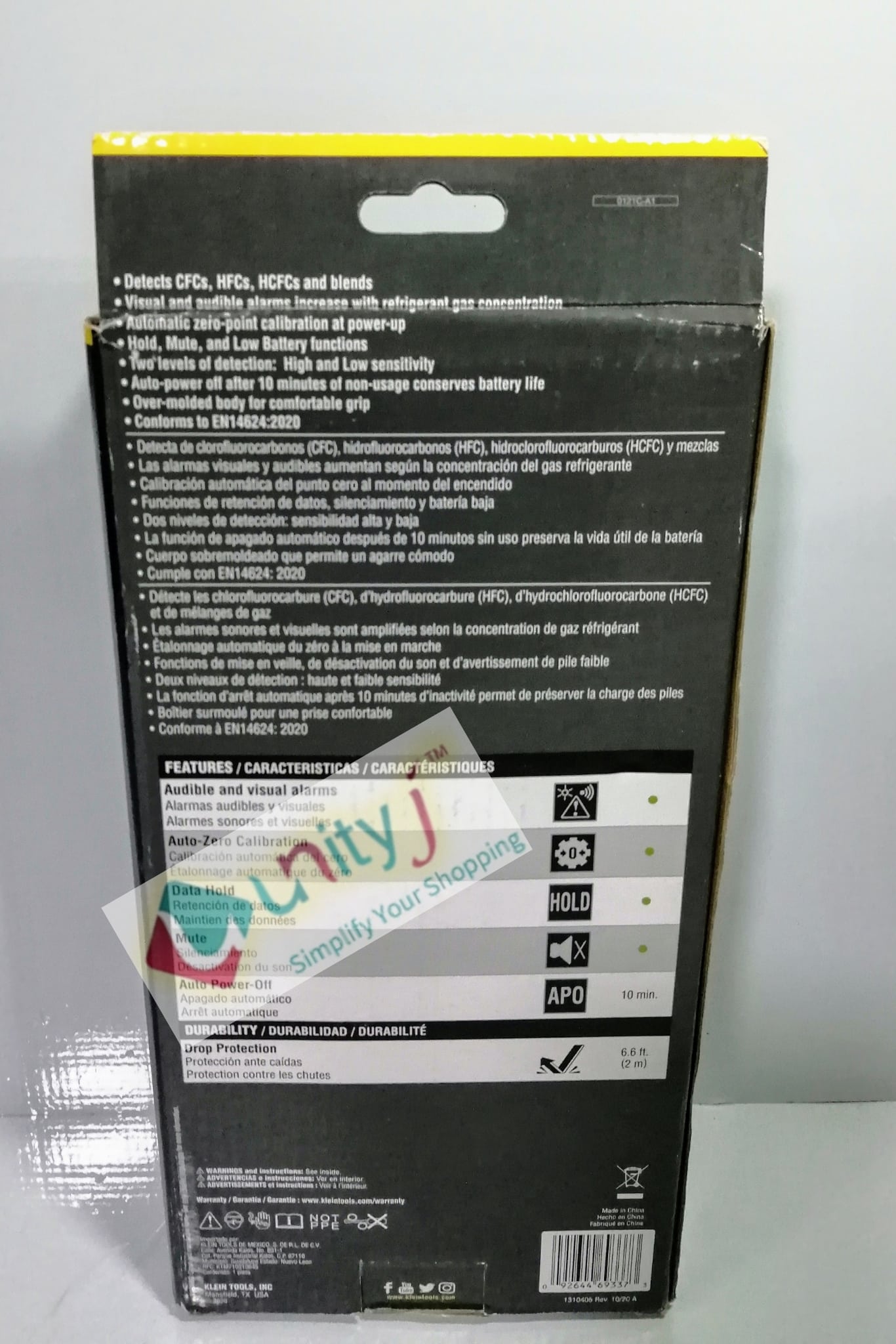
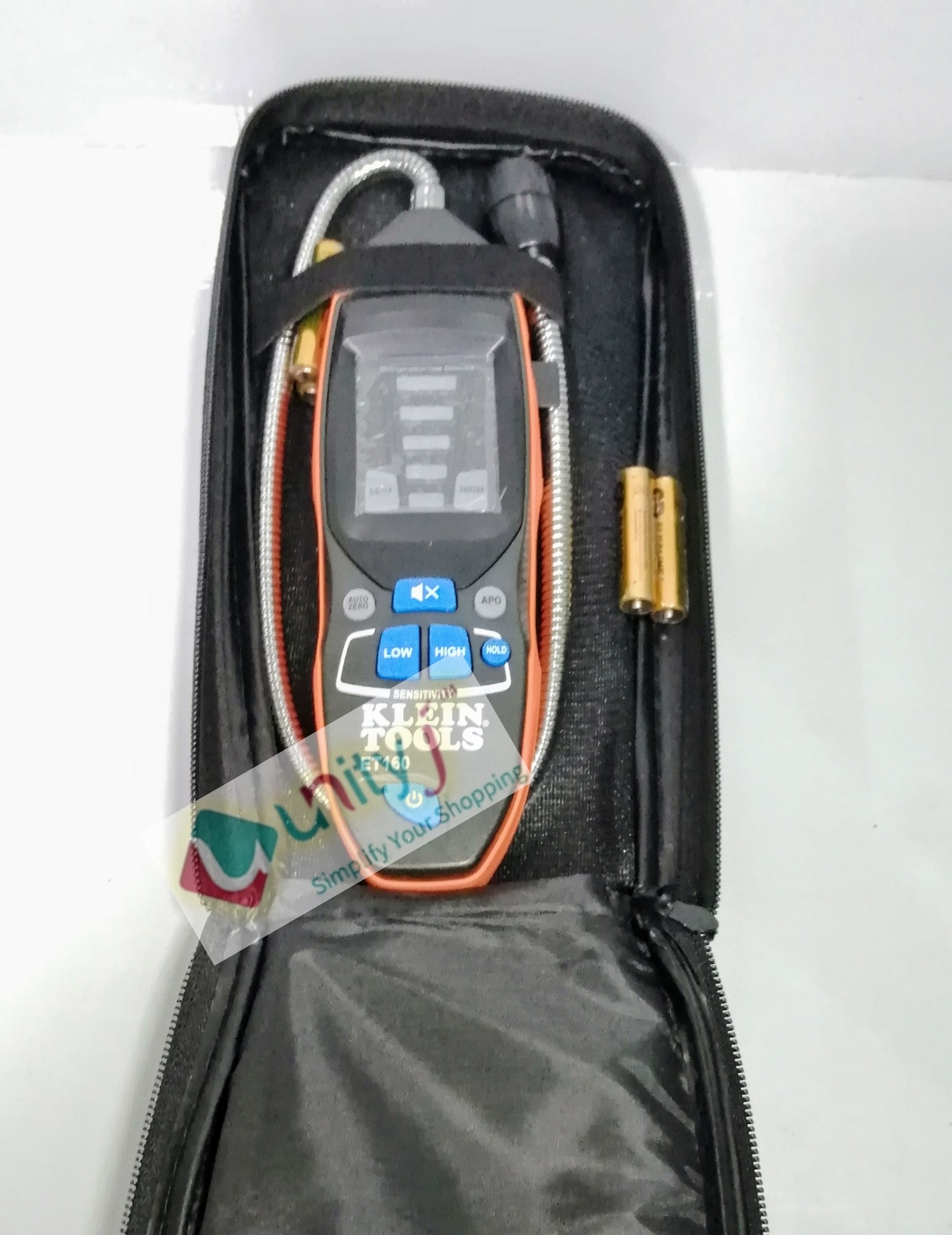
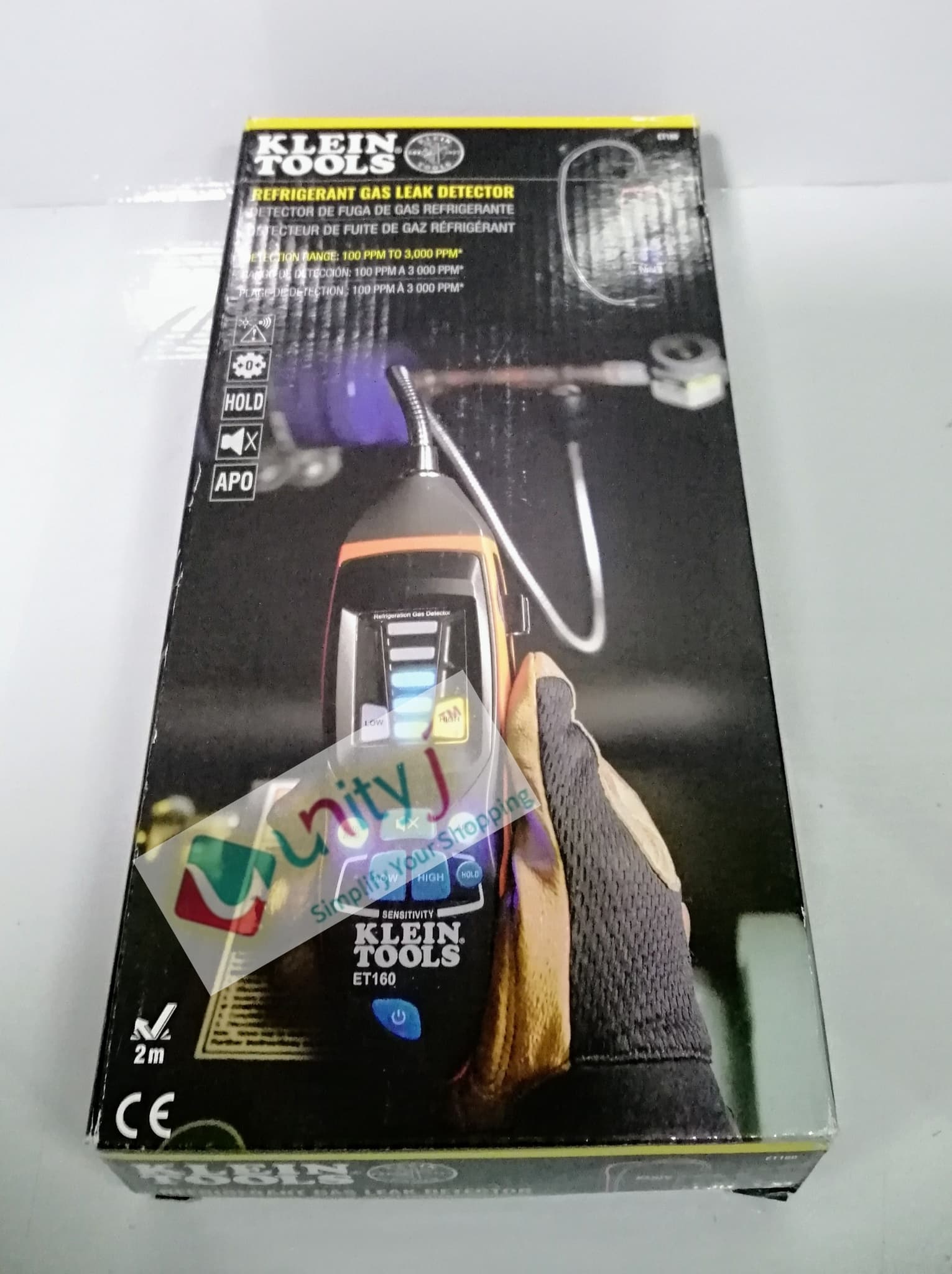
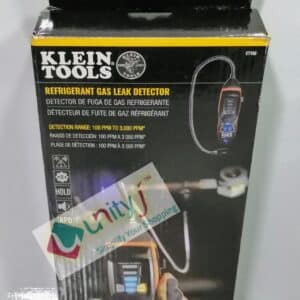
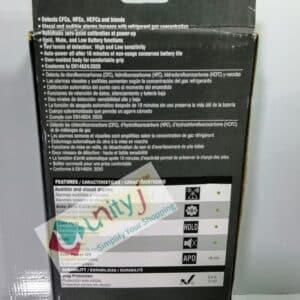
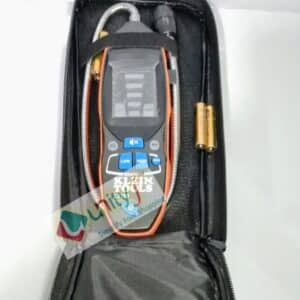

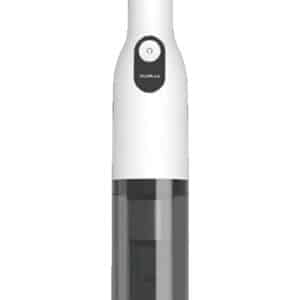











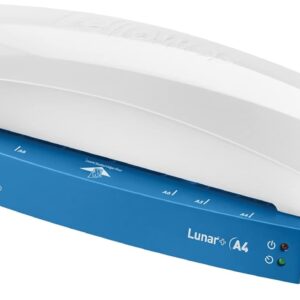

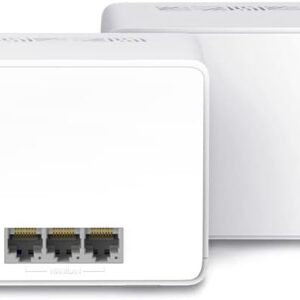
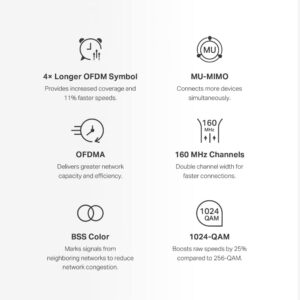
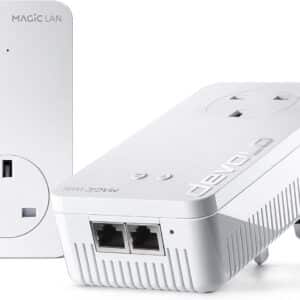

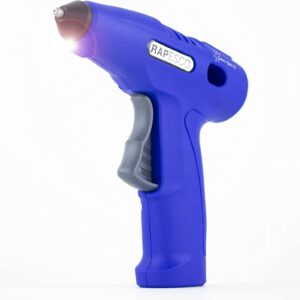







Username –
Review
drunkennewfiemidget –
Before buying this I’d tried a less expensive detector. To test that one I held it up to a known active leak.Nothing.So I returned that and bought this one. This one detected the known leak and then found the leak in another system shortly thereafter. (it was an overtightened flare nut.)
2 people found this helpful